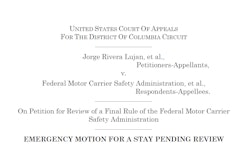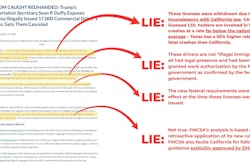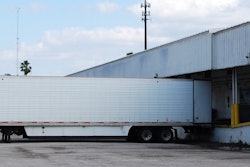Trucking news & briefs for November 14, 2025:
- Oregon's guv signed a fuel-tax/vehicle-registration fees hike into law last week. An effort to challenge the hikes is under way.
- ATRI wants to hear carriers' insurance experiences as part of new research.
Oregon's road funding bill hikes fuels taxes and changes weight-mile tax tables, yet a challenge is brewing
On November 7, Oregon Governor Tina Kotek signed state House Bill 3991, hiking the state's fuels tax and aiming generally to increase revenue collection for roads there.
"The average Oregon driver will pay about $66 more annually in registration fees and gas taxes," Kotek said in her signing letter, "or about $5.50 per month."
For professional truckers traveling to, through or out of the state, the need for increased revenue may have come as a surprise -- Oregon placed within the top 10 for "Best Roads" in results of the Overdrive 2025 Highway Report Card survey, though at No. 10 with just 3% of the total vote, the state tied with several others. (Fill out the form at the bottom of this page to access the full report.)
[Related: Like a 'bronco buster at a rodeo': Truckers' experience of American roads today]
Kotek's bill also comes with a simplification of the weight-mile tax levied on commercial haulers. "Oregon's complicated system of taxing trucks will be vastly simplified," she said. A current 85 different weight-mile rates will be consolidated to just 10, "plus the diesel tax paid by trucks" at the pump. Kotek hoped that would generally reduce tax evasion, and said truckers have shouldered a "disproportionate burden for the last several years" when it comes to funding the roads, compared to passenger-vehicle owners.

Yet the bill she signed also provides for the same hike in diesel fuel as in gasoline, moving both from 40 to 46 cents/gallon, likewise hiking vehicle registration and title and other fees. With weight-mile tax simplification over the next years, called for in the bill, more truckers are expected to be subject to a measure of the diesel tax than are today.
 Current weight-mile tax table for rates paid on Oregon roads, from this Oregon DOT presentation to the legislature with options for simplification.
Current weight-mile tax table for rates paid on Oregon roads, from this Oregon DOT presentation to the legislature with options for simplification.
An effort to challenge the planned fuel-tax and fees hikes is under way, with proponents hoping to garner enough signatures to get it on the ballot for a public vote. That effort will not target the weight-mile simplification and diesel changes, part of which also brought diesel under the same "motor fuel" category as gasoline.
Oregon Senator Bruce Starr accused the governor of ignoring Republican legislators who hoped for a more bipartisan package, calling the fuel-tax hikes unnecessary.
Starr pledged Oregon voters would "have the opportunity to weigh in, hold their leaders accountable, and demand a transportation system that works for the people who pay for it." The "No Tax Oregon" effort needs 78,000 signatures to put it up for a vote, and signatures must be collected in person.
[Related: Health insurance: Owner-operators, what's your coverage outlook for 2026?]
ATRI exploring insurance strategies amid ballooning liability costs
The American Transportation Research Institute invited motor carriers of all and sizes to participate in research on rising insurance costs and strategies for managing risk. A new survey asks for data from motor carriers about their insurance coverage for the years 2021 through 2024, in addition to information on use of safety technology and alternative insurance arrangements (self-insurance, captive programs).
Motor carriers of any size can complete the survey by PDF or online here. The deadline is Friday, December 19.
Trucking liability insurance premiums rose by 36 percent per mile in the past eight years, by ATRI's accounting, amid persistent unprofitability for insurers, even as truck crashes declined over the past four years. In 2025, insurance cost/availability and lawsuit abuse, a primary contributor to rising insurance costs, were voted as the third- and second-greatest issues facing motor carriers.
[Related: How to navigate the trucking insurance market to save at renewal]
In response to the pressures on finances, fleets reevaluate total risk cost by pursuing a variety of new technologies, training protocols, and insurance schemes like those self-insurance or captive programs, ATRI said. Prior research by the organization detailed how carriers reduced coverage and raised deductibles between 2018 and 2020 in search of savings, self-incentivizing safety improvements but still experiencing higher premiums.
ATRI’s Research Advisory Committee now is putting high priority on expanding on prior research to better understand and assess industry-wide trends in the ongoing adoption and effectiveness of these strategies.
All data collected through this recent request, ATRI noted, is kept completely confidential for analysis in aggregate form only, and ATRI will sign non-disclosure agreements with carriers as desired, the organization notes.
All participating carriers will receive a report that compares their fleet’s cost of risk to an anonymized peer group.
[Related: ELD data engagement: Your insurance premiums could depend on it]









